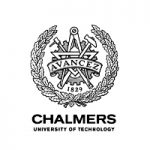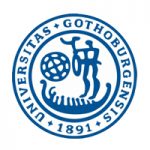项目介绍
PHD environmental health students will contribute new knowledge in understanding the impact of environmental stressors – physical, chemical, and biological – on human health and comfort. Students are skilled in research, assessment, and evaluation of the impact of environmental stressors; they identify potentially adverse environmental agents, assess their exposures, determine their impact on health, and estimate the consequent risk. Students can develop expertise and conduct independent research in a variety of environmental health-related areas including epidemiology, toxicology, occupational health, respiratory physiology, thermal physiology, exposure assessment, psychophysics, air quality, and risk assessment. Programs of study are planned on an individual basis to provide students with the specialized knowledge required for their selected research area as well as to provide breadth in related areas of epidemiology and public health. Courses are chosen from those available in the department and elsewhere in the University. Students entering the doctoral program typically have a strong background in undergraduate science and frequently have a master’s degree in public health. (A master’s degree is not required to apply for this program.)
This program requires General GRE test scores. Please send them to institution code 3987 (there is no department code).
Degree Requirements – PhD in Environmental Health Sciences
2022-23 MatriculationThe Ph.D. degree requires a total of 13 course units. Course substitutions must be identified and approved by the student’s advisor and DGS.
PhD Required Courses (9 course units)
- CDE 617/EMD 625 Developing a Research Proposal OR How to Develop Write and Evaluate an NIH Proposal – 1 unit
- EHS 503 Public Health Toxicology – 1 unit
- EHS 507 Environmental Epidemiology – 1 unit
- EHS 508 Environmental and Occupational Exposure Science** – 1 unit
- EHS 525 Seminar and Journal Club in Environmental Health – 0 unit
- EHS 526 Seminar and Journal Club in Environmental Health – 0 unit
- EHS 619 Research Rotation – 1 unit
- EHS 620 Research Rotation – 1 unit
- EPH 505 Biostatistics for Public Health – 1 unit
- EPH 508 Foundations of Epidemiology and Public Health – 1 unit
- EPH 600 Research Ethics and Responsibilities – 0 unit
- EPH 608 Frontiers in Public Health* – 1 unit
Suggested Electives (must take a minimum of 4)
- BIS 505 Biostatistics in Public Health II – 1 unit
- BIS 623 Advanced Regression Models – 1 unit
- BIS 628 Longitudinal & Multilevel Data Analysis – 1 unit
- CDE 534 Applied Analytic Methods in Epidemiology – 1 unit
- CDE 516 Principles of Epidemiology II – 1 unit
- CDE 520 Case-Based Learning for Genetic and Environmental Diseases – 1 unit
- EHS/CDE 502 Physiology for Public Health – 1 unit
- EHS 511 Principles of Risk Assessment – 1 unit
- EHS 530 Air Pollution and Public Health – 1 unit
- EHS/HPM 531 Systematic Reviews, Meta-Analyses, and Meta-Research – 1 unit
- EHS/EMD 537 Water, Sanitation, and Global Health – 1 unit
- EHS 545 Molecular Epidemiology – 1 unit
- EHS 547 Climate Change and Public Health – 1 unit
- EHS 560/ENV 606 Methods in Climate Change and Health Research – 1 unit
- EHS/CDE 563 Biomarkers of Exposure, Effect, and Susceptibility in the Epidemiology of Non-Communicable Diseases – 1 unit
- EHS/CDE 566 Causal Inference Methods for Public Health Research – 1 unit
- EHS 567 Fundamentals of Green Chemistry and Green Engineering – 1 unit
- EHS 568 Introduction to GIS for Public Health – 1 unit
- EHS 569 Advanced GIS Workshop – 1 unit
- EHS 581 Public Health Emergencies: Disaster Planning and Response – 1 unit
- ENV 755 Modeling Geographic Space – 1 unit
- ENV 756 Modeling Geographic Objects – 1 unit
*Students entering the program with an MPH or relevant graduate degree may be exempt from this requirement.
**Students entering the program in 2022 will take EHS 530 in Spring 2023 as an alternative for EHS 508.
Research Requirements
Two research rotations during the first academic year in EHS laboratories able to accommodate students are required for each student, one in the fall term and one in the second term. In consultation with the student’s advisor, an additional rotation may be offered during the summer between the first and second years. Research rotations will be available for both “dry” (i.e., statistical analysis) and “wet” (i.e., bench) laboratory research groups. The student will meet with the EHS graduate faculty member at the beginning of the rotation for an explanation of the goals and expectations of a student in the laboratory. The student will become familiar with the research models, approaches, and methods utilized by the research group through interactions with other laboratory/research personnel and from laboratory manuscripts. The student is expected to spend at least fifteen hours per week working in the laboratory or research group and to present a rotation seminar at the end of the rotation period.
Research projects in this department cover a broad range of environmental health research in areas of epidemiology, toxicology, occupational health, respiratory physiology, thermal physiology, exposure assessment, psychophysics, air quality and risk assessment.
Recent Dissertation Projects
- Evaluating Exposure to Unconventional Oil and Gas Development and Childhood Leukemia Risk
- The Effect of Phenols on Reproductive Function and the Urinary Metabolome
- Identifying the Role of Glutathione Biosynthesis in Pancreatic β Cell Function
- Interplay Between Oxidative Stress and Pax6 in the Development of Microphthalmia
- Ambient Temperature, Humidity, Air Pollution and Renal Disease Risk
- Molecular Mechanisms of Colon Cancer: Interaction Between Aldehyde Dehydrogenase 1B1 and the Wnt Pathway
- Characterization of the Chemical Exposome using Fresh Air Samplers
- Ambient Air Pollution, Gestational Weight Gain and Fetal Growth Trajectories: A Longitudinal Birth Cohort Study
联系方式
电话: 203-432-4771相关项目推荐
KD博士实时收录全球顶尖院校的博士项目,总有一个项目等着你!






